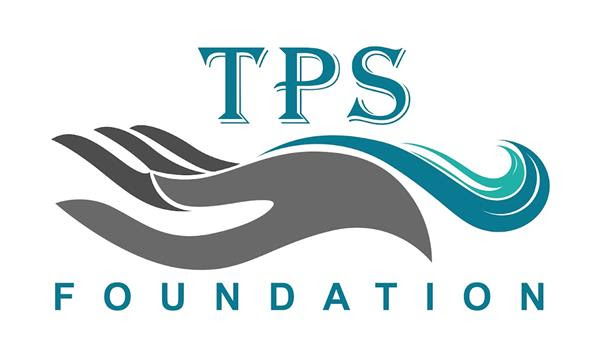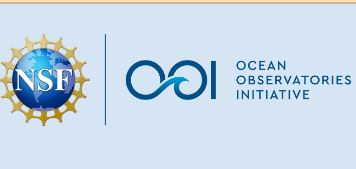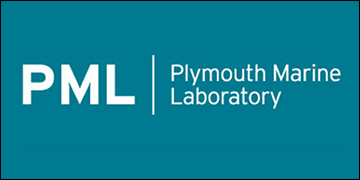The position is for image processing in aquatic remote sensing. Location is Bremen, Germany. More information here: https://jobs.planblue.com/
Author: merriebethneely
Apply for the OOI Bio-Optics Sensor Summer School!
Marine phytoplankton play an important role in ocean ecology and global biogeochemical cycles. The optical attenuation and absorption data from the AC-S provides information on the relative biomass of different phytoplankton size classes and phytoplankton functional
• Climate Variability, Ocean Circulation, and Ecosystems.
About 25 advanced graduate students, post-doctoral fellows, and early career scientists will be selected as participants for the summer school. Other career level researchers will be considered, based on space availability. Participants should have a general understanding of oceanography/biology. Only applicants from U.S institutions can be considered. Participation will be in-person only and all selected students must be available to attend all days of the course. Funding for reimbursement of travel expenses, accommodations, and meals is offered.
Additional details about the summer school program, as well as a link to the application form are available at: https://ooifb.org/
Abstracts due in late March! HISE Meeting July 31- August 3, Germany
Dear Aquatic Remote Sensing Community,
Abstracts are due 28 March 2023 and can be submitted through the website:
TPSF Symposium Abstract Deadline 13 Feb 2023!
Trevor Platt Science Foundation (TPSF) Symposium: Abstract deadline 13 Feb 2023
 |
|
Trevor Platt Science Foundation (TPSF) and partners are having their inaugural science symposium from 9 -11 August 2023, at the Plymouth Marine Laboratory (PML), UK:
Trends, Reflections, Evolution, and Visions in Ocean Research – a celebration of the scientific life of Trevor Platt.
The symposium will include keynote and invited lectures, oral and poster presentations, and networking sessions.
Abstracts are invited for talks or posters on the following themes, and the deadline for abstract submission has been extended to 13 February 2023:
- Primary production, physiology and ecology of marine phytoplankton
- Thermodynamics of aquatic ecosystems
- Physical and biological interactions
- Marine optics
- Size structure of marine communities
- Remote sensing of ocean colour
- Ocean carbon cycle and climate change
- Water quality and human health
- Time series of ocean observations and their analyses
- Ecological approaches to fisheries management
- International collaboration and capacity building
Click here to submit an abstract for the Symposium.
The deadline for application of the associated in-person training course: Satellite-based tools for investigating aquatic ecosystems has also been extended to 13 February 2023.
Read more about the Symposium and register here.
ASLO 2023 – Special Session Call for Abstracts!
COURTESY POST:
Dear Colleagues from the ocean colour and water radiometry communities,
We encourage you to submit an abstract to the following Session (SS102) of the 2023 ASLO Aquatic Sciences Meeting, which will be held from 4 -9 June 2023 in Palma de Mallorca, Spain. The abstract submission is open until 23 February 2023.
Session abstract: Coastal and inland waters ecosystems are ecologically, culturally, and economically important. Monitoring these environments is therefore essential to understand ecosystem functioning, how to ensure sustainable practices and assess the impact of human activities. Among the large diversity of measurement techniques, optical remote sensing presents some clear advantages. Indeed, earth observation satellites nowadays allow to monitor the spatial variability of water quality parameters over large areas and with relatively short revisiting times. In water and above water radiometers, have a great potential for ecosystem monitoring, especially if they are integrated into autonomous measurement systems providing high temporal resolution data, or if they have a high spectral resolution opening the door to new environmental products based on fine spectral features. However, retrieving relevant information on water constituents from radiometric data in optically complex waters is still challenging. Indeed, although in clear, case-1, waters most of the bio-optic parameters are dependent of the chlorophyll-a concentration, in coastal and inland waters (i.e. case-2 waters) light absorption and scattering is affected by terrestrial inputs of sediments and/or dissolved organic carbon which can make the retrieval of simple parameters such as the chlorophyll-a concentration very complicated. In addition, atmospheric correction algorithms are more challenging because of potentially extreme optical water properties and the proximity with the coast or surrounding land. This session is open to all contributions presenting novel applications of inland and coastal aquatic monitoring based on visible and NIR radiometric remote sensing data either from satellite or in situ sensors.
Hope to see you all there,
Héloïse, Clémence, Pierre, David and Evangelos.





